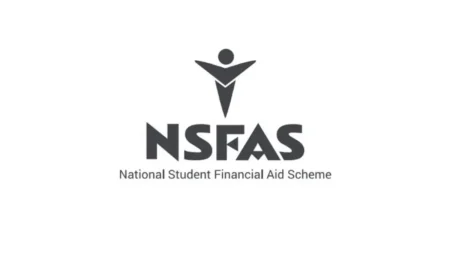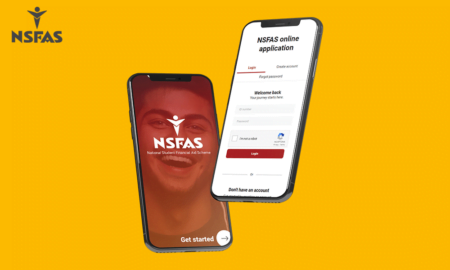Failing a semester in university can feel like a huge setback, especially when you’re relying on NSFAS (National Student Financial Aid Scheme) to fund your education. But don’t worry, it’s not the end of the road.
In this article, we’ll unpack how failing a semester or module impacts your NSFAS funding for 2025, and what steps you can take to stay on track with your financial support.
What Happens If You Fail a Semester?
1. The N+2 Rule Explained
One of the key policies that NSFAS uses to determine continued eligibility is the N+2 rule. This means that students are funded for the minimum duration of their course (N) plus an additional two years. For instance, if your degree is supposed to be completed in 3 years, NSFAS will fund you for up to 5 years.
But what happens if you fail a semester or a module?
If you fail, the duration of your course increases, and the extra time you use will count against your N+2 years. So, if you fail one semester, you’re still covered within those 5 years. However, if you keep failing and exceed the N+2 period, you may lose your NSFAS funding.
2. Academic Performance Requirements
NSFAS expects students to maintain good academic standing. According to the guidelines, you need to pass at least 50% of your modules each year to continue receiving funding. If you fail more than 50% of your modules, NSFAS may discontinue your funding for the following year. This rule is in place to ensure that students are making satisfactory progress towards completing their qualification.
3. The Impact of Failing Multiple Modules or Semesters
Failing one or two modules may not have an immediate impact on your NSFAS funding, as long as you still pass at least 50% of your subjects. However, if you fail a significant number of modules or entire semesters repeatedly, NSFAS may revoke your funding, as you would no longer meet their academic performance criteria.
4. Suspension of Funding
If your academic performance is not satisfactory, NSFAS may suspend your funding for a year. This doesn’t necessarily mean permanent disqualification. You can reapply for funding the following year once your academic performance improves. During the year of suspension, students have to pay for their own studies, which is often a challenge for many.
What Can You Do If You Lose NSFAS Funding for 2025?
1. Appeal for Reconsideration
NSFAS allows students to appeal if their funding is discontinued due to poor academic performance. This appeal process requires you to provide a valid reason for your academic struggles. For instance, if you failed due to personal or medical issues, you can submit supporting documents such as medical certificates or a letter from your therapist.
To submit an appeal, you’ll need to fill out the NSFAS appeal form available on the NSFAS website and upload it along with your supporting documents. It’s crucial to provide as much information as possible to support your case. Appeals are considered on a case-by-case basis, and there’s no guarantee that your funding will be reinstated.
2. Improve Your Academic Performance
If your funding has been suspended, use the time to improve your academic standing. Seek academic support, consult your lecturers, and join study groups. Once your academic performance has improved and you meet the NSFAS requirements again, you can reapply for funding.
3. Consider Alternative Funding Options
If your NSFAS funding is permanently discontinued, you might have to explore alternative sources of funding such as bursaries, scholarships, or part-time work. Many institutions offer additional support for students who are struggling financially, so reach out to your university’s financial aid office to see if there are other opportunities available.
Tips to Avoid Losing NSFAS Funding
- Stay on Top of Your Studies: Attend all your classes, complete assignments on time, and prepare well for your exams.
- Seek Academic Support Early: If you’re struggling with your studies, seek help early. Most universities have support systems such as tutoring services and counselling that can help you overcome academic challenges.
- Manage Your Time Effectively: University can be overwhelming with all the assignments and exams. Create a study schedule and stick to it to avoid falling behind.
- Balance Studies and Personal Life: While it’s important to focus on your studies, don’t neglect your mental and physical health. Make time for exercise, socializing, and relaxation.
- Understand NSFAS Requirements: Keep up-to-date with NSFAS policies and requirements so you know what’s expected of you. This will help you make informed decisions and avoid losing your funding.
Frequently Asked Questions (FAQs)
Q: Will NSFAS fund me if I change courses after failing?
A: NSFAS will still fund you if you change courses, but the years you’ve already used up will count towards your N+2 years. This means if you’ve already spent 2 years on a course and change to a 3-year program, NSFAS will only fund you for 3 more years (instead of 5).
Q: Can I reapply for NSFAS if my funding is revoked?
A: Yes, you can reapply, but only once you meet the academic requirements again. This may mean funding your own studies for a year or more until you’re eligible.
Q: What if I’m unable to study for personal reasons like illness or family issues?
A: You can apply for a leave of absence from your university and NSFAS. If your leave of absence is approved, NSFAS will pause your funding and resume it when you’re able to return.
Got More Question: Introducing the New NSFAS WebChatbot For Swift Responses
Failing a semester or a module can be stressful, but it doesn’t mean your academic journey is over. Understanding how NSFAS funding works and taking proactive steps to improve your academic performance can help you stay on track. If you’re struggling, don’t hesitate to seek help and use the resources available to you.
The key is to stay informed and make decisions that will help you reach your goals without compromising your financial support. Use this article as a guide to navigate your NSFAS funding issues, and keep pushing towards your dreams.










